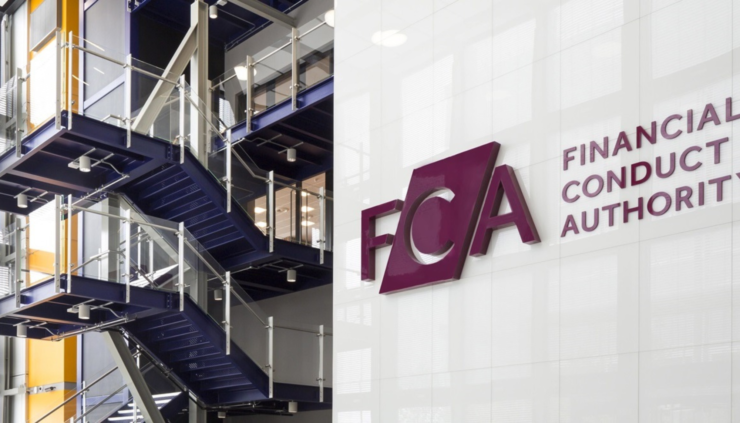The United Kingdom’s Financial Conduct Authority (FCA) has confirmed plans to launch a comprehensive authorization regime for crypto firms by 2026, signaling a major shift in the country’s regulatory approach. The new framework, described as a “gateway regime,” will replace the current registration model focused primarily on anti-money laundering (AML) compliance.
In an interview with CoinDesk, Matthew Long, director of payments and digital assets at the FCA, stated that the new regime will serve as a full-scale licensing system. Crypto firms will need to apply for formal authorization covering a broader scope of operations, rather than relying solely on AML registration.
“We will have a gateway that enables authorization,” Long said, adding that the process still requires industry consultations, legislative drafting, and final rulemaking before it is enacted. Once finalized, the system will apply to all digital asset service providers—including exchanges, custodians, and token issuers—operating within the UK.
High-profile players like Coinbase, Gemini, and Bitpanda, which are currently registered under AML rules, will need to undergo a new approval process tailored to their full suite of services. This marks a significant regulatory evolution aimed at strengthening oversight, investor protection, and market integrity as the sector matures.
Historically, the FCA has maintained a cautious approach towards crypto firm approvals. As of December 2024, only 48 out of 365 applicants had received approval, highlighting the regulator’s stringent standards. The upcoming regime is expected to introduce even more rigorous requirements, prompting crypto firms, including stablecoin issuers and exchanges, to prepare for heightened regulatory scrutiny.
Current Regulatory Landscape and Challenges
Preliminary guidance published by the former UK government in 2023 indicated that regulated crypto activities would likely include the issuance of stablecoins and fiat-backed digital assets, as well as services involving payments, exchanges, and crypto lending.
Notably, the UK is recalibrating its approach to stablecoin regulation. In a departure from earlier plans to place stablecoins under existing payments legislation, former Economic Secretary to the Treasury Tulip Siddiq confirmed in late 2023 that the FCA would now consult on dedicated draft rules. These are expected to be released in early 2025.
“What we’re doing in terms of the stablecoins is we’re making sure that we take the best from the current regulation that exists in TradFi,” Long said.
“But stablecoins are ultimately unique—there isn’t anything that is exactly the same. We’ve got to adapt the regulation that we’ve currently got.”
The forthcoming framework is expected to raise compliance expectations across the board, prompting both domestic and international firms—especially those dealing with stablecoins and crypto financial services—to prepare for stricter scrutiny and clearer licensing obligations under the FCA’s evolving supervisory model.
FCA Weighs Transition Plan as Crypto Firms Await Licensing Clarity

The FCA is still finalizing the exact procedures that firms will need to follow to obtain approval. According to Long, while firms already registered under the existing AML framework may be allowed to retain parts of their registration, any company seeking expanded permissions under the new rules will likely have to undergo a fresh application process. This could include more comprehensive disclosures, enhanced operational requirements, and updated compliance procedures—even for companies that are currently licensed.
“We’ll be communicating with firms about what the gateway will look like before it goes live,” Long said, emphasizing that the FCA intends to launch the system “as soon as humanly possible.”
To ensure that its framework aligns with global standards, the FCA is actively reviewing international models—particularly the European Union’s MiCA legislation and the IOSCO’s 18 recommendations for crypto oversight. The International Organization of Securities Commissions (IOSCO) is expected to release a report in the coming months detailing how member nations are progressing on those guidelines.
Global Context and Industry Implications
The FCA’s move aligns with a broader global trend toward comprehensive crypto regulation. For instance, the European Union’s Markets in Crypto-Assets (MiCA) regulation is set to enforce stablecoin rules by June 2025, with broader crypto firm licensing requirements following in December.
Industry leaders have expressed concerns about the UK’s regulatory pace, noting that delays could hinder the nation’s competitiveness in the burgeoning crypto market. Engagement with the FCA’s consultation process is deemed crucial to ensure that the forthcoming regulations balance innovation with risk mitigation.
Quick Facts:
- The UK’s Financial Conduct Authority plans to introduce a new authorization regime for crypto firms by 2026.
- The FCA will consult with industry stakeholders to develop and implement these regulations.
- This initiative reflects a global trend toward stricter crypto regulation, with similar measures underway in the European Union.





